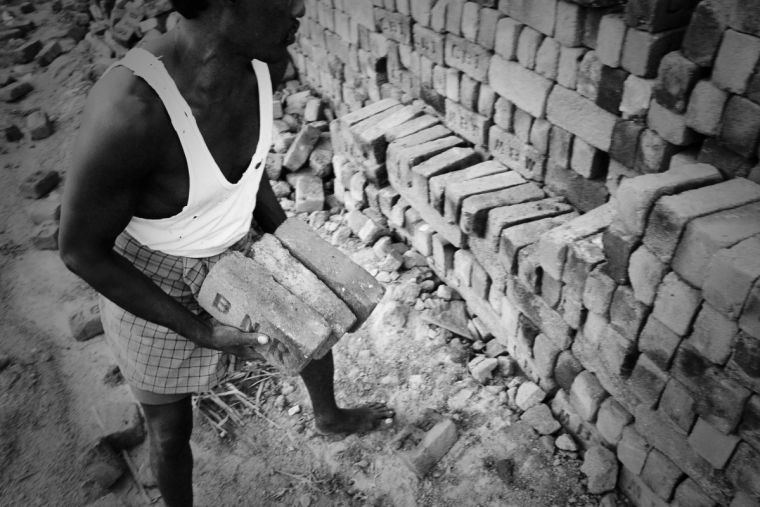This story of two modern slaves is why we should care about slavery
This coming Sunday, September 24, thousands of churches around the world will dedicate their service to fighting modern day slavery as part of International Justice Mission's annual 'Freedom Sunday'. 2,600 churches from 16 countries will share stories about the reality of slavery and call on their congregants to partner with IJM until all are free.

The call to act on slavery will go out in 10 different languages as Christians worldwide unite to fight for over 40 million men, women and children who are in slavery today. More people are in slavery today than at any other point in human history, and an estimated one in four modern day slaves are children. Slavery takes many forms – from forced labour in brick kilns and rock quarries to new crimes like cybersex trafficking.
The global response to modern slavery is starting to gain momentum – and that momentum is needed more than ever.
Should the sheer size of the global slavery figure numb your senses, let me tell from you about two of those slaves, Dialu and Nilambar. The two men were among a group of 14 men and women from the impoverished Indian state of Odisha who were trafficked by recruiters attempting to enslave them in a brick kiln. Dialu and Nilambar escaped by jumping from the truck but were quickly recaptured.
For nearly a week, their traffickers held them captive, starving, taunting, and torturing them as punishment for the escape attempt. Then, late one night, the traffickers threatened to kill the men and gave them a choice: lose your head, your right leg or your right hand. Dialu and Nilambar each had a hand amputated at the wrist.
Dialu and Nilambar's horrific abuse was captured in the Indian press and created a public uproar that contributed to decisive government action. The Indian Supreme Court instructed the Odisha and Telangana High Courts to ensure proper procedures for rescuing victims and preventing further brutalities like this. Anti-slavery NGO International Justice Mission provided legal representation to the victims and represented them in court, as well as supporting them as they came to terms with their trauma. On December 24, 2016 the court convicted all eight of the suspects in custody for charges including kidnapping, trafficking, bonded labour slavery and attempted murder and sentenced them to life imprisonment.
Dialu and Nilambar's story is unusual not in its brutality – slavery everywhere is characterised by violence that terrifies millions of victims into submission – but in its outcome. Prosecution for bonded and forced labour slavery is exceptionally rare. The US State Department's latest slavery data puts the number of convictions for labour slavery globally at a disgracefully paltry 717 – this for a crime that claims tens of millions of victims every year and generates $150 billion in profits annually!
The ILO and Walk Free have done a great service to the world by engaging in collaborative scholarship to secure the strongest, most accurate estimate of global slavery to date. But, ultimately, the bigger global challenge is not to count slaves but to free them. And that brings us to The Global Fund to End Modern Slavery.
The Global Fund to End Modern Slavery is designed to significantly expand victim rescue, rehabilitation, and perpetrator accountability in the world's most slavery-burdened countries. The US and UK have taken a lead in making the first contributions to GFEMS but for the fund to achieve its goal other donor countries will need to join the fight.
In our own anti-slavery work in the field, International Justice Mission has found that traffickers, brothel owners, pimps, and slave owners aren't especially courageous. When local police are equipped to do their jobs – rescue victims, gather evidence, and apprehend suspects – and when local courts prosecute and punish them, the crime can dry up quickly. IJM found that the prevalence of children available for sexual exploitation in the Philippines and Cambodia, for example, plummeted over just a few years when we worked with local government and law enforcement to ensure that police were equipped, trained, mentored and motivated to enforce the law.
IJM and its local government partners have shown that slaves can be rescued, perpetrators can be punished and slavery prevalence can be dramatically reduced.
Slavery today is more vast than ever, but also more stoppable than ever. This week marks a significant step forward in the fight to end modern slavery for good. It's now up to all of us to play our part.
David Westlake is chief executive officer of International Justice Mission.
To join the fight to end slavery visit www.ijmuk.org/give
To take part in Freedom Sunday visit www.ijmuk.org/freedomsunday











